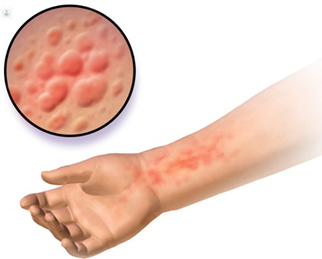
Urticaria
Urticaria also called hives, are usually itchy, a raised patch that is found on the skin red, pink, or flesh-colored. In most cases, hives are caused by an allergic reaction to a medication or food or a reaction to an irritant in the environment. In many cases, hives are an acute problem that may be alleviated with allergy medications.
Most rashes go away on their own. However, chronic cases, as well as hives accompanied by a severe allergic reaction It is generally caused as a reaction to some allergen either via contact or ingestion.

Apis mel : This is one of the best homeopathic medicines for Urticaria. In fact, it is the most commonly prescribed one when it comes to the treatment of Urticaria. The characteristic symptoms of this medicine happen to be the burning and stinging that accompanies the eruptions. There is redness and swelling as from the sting of a honey bee. Heat is intolerable .
Natrum Mur : This is one of the most frequently used natural homeopathic medicines for Urticaria. The eruptions are red and oedematous in character. There is intense itching of the skin. Exposure to the sun can easily trigger itching and eruptions. Another factor that can cause the eruptions is exercise or any sort of exertion. The skin is usually oily or greasy.
Urtica urens: Itching and burning of the skin as if scorched, raised red blotches, fine stinging points; pale rash requiring constant rubbing; consequences of suppressed Urticaria. Eruption and itching disappears as soon as the patient lies down and reappears immediately after rising. There is oedema of the face, chest and limbs without inflammation
PATHOGENESIS
The skin lesions of Urticaria disease are caused by an inflammatory reaction in the skin, causing leakage of capillaries in the dermis, and resulting in an oedema which persists until the interstitial fluid is absorbed into the surrounding cells.
The skin lesions of Urticaria disease are caused by an inflammatory reaction in the skin, causing leakage of capillaries in the dermis, and resulting in an oedema which persists until the interstitial fluid is absorbed into the surrounding cells.
CLASSIFICATION
- Acute spontaneous Urticaria
- It lasts <6 weeks.
- Chronic spontaneous Urticaria (CSU)
- It recurs at least twice a week and lasts >6 weeks [3].
- Physical Urticaria (chronic inducible Urticaria)
- It emerges due to etiological factors as dermographism, cold, hot, vibration, pressure, and solar factors. It constitutes 20–30% of chronic Urticaria.
Aetiology:
Many factors may be responsible for the aetiology of the disease. Often, encountered factors include:
- Medications: Any drug may cause Urticaria. However, the most commonly encountered ones are penicillin, aspirin, non-steroidal anti-inflammatory drugs, sulphonamides, thiazide diuretics, oral contraceptives, angiotensin-converting enzyme inhibitors, vitamins, codeine, morphine, curare and its derivatives, synthetic adrenocorticotropic hormone, and radio contrast substances. It may manifest from 1–2 h to 15 days after oral intake.
- Foods: Foods often encountered as causes of Urticaria include nuts, eggs, fish, seafood, chocolate, meat, cow’s milk, fruits (citrus fruits, grapes, plums, pineapples, bananas, apples, and strawberries), vegetables (tomatoes, garlic, onions, peas, beans, and carrots), mushrooms, fermented foods, spices, and spirits. Preservatives such as benzoic acid derivatives, and salicylates and food dyes are also important causative factors. Urticaria is usually seen 1–2 h after ingestion. Food-related urticarial rashes are more common in children.
- Respiratory allergens: Pollen, mold spores, mites, animal dandruff, and hairs may cause Urticaria when taken through the respiratory tract. Smoking is also an important factor since it contains many chemicals and can worsen the Urticaria, hives should be advised to stop smoking.
- Infections: Respiratory infections such as sinusitis, tonsillitis, dental abscesses, urinary tract infections, hepatitis, infectious mononucleosis, and parasites may cause Urticaria.
- Contact Urticaria: Latex, cosmetics, and chemicals may cause urticaria by contact.
- Insect bites: They should be questioned, especially in children.
- Psychogenic factors: Reasons such as stress, sadness, and depression may aggravate the pre-existing urticaria and also induce urticaria.
- Systemic diseases: They may cause especially chronic urticaria. The presence of thyroid diseases and rheumatic diseases such as systemic lupus erythematous, lymphoma, leukemia, and carcinomas may be investigated as required. It should be noted that urticaria may occur also in pregnant women.
- Physical factors: Urticaria may develop due to external factors such as pressure, hot, cold, and dermographism. Urticaria secondary to pressure generally manifests an average of 3–4 h after exposure to pressure. Therefore, they are termed as delayed pressure urticaria.
- Hereditary: Hereditary urticaria is seen in types of urticaria as angioedema and familial cold urticaria.
TYPES OF URTICARIA
Episodic chronic Urticaria :- It lasts >6 weeks but recurs <2 times per week .It should be kept in mind that CSU and physical Urticaria can be seen together. CSU is most commonly associated with dermatographic Urticaria and late pressure Urticaria.
Dermatographic urticaria: It is marked by the appearance of wheals or welts on the skin as a result of scratching or firm stroking of the skin. Seen in 4-5% of the population it is one of the most common types of urticaria, in which the skin becomes raised and inflamed when stroked, scratched, rubbed and disappears within 30 mints.
Pressure or delayed pressure: The type of urticaria can occur right away, precisely after a pressure stimulus or as a deferred response to sustained pressure being enforced to the skin. In the deferred form, the hives only appear after about six hours from the initial application of pressure to the skin. The hives may last from eight hours to three days.
Cholinergic or stress urticaria: this form of urticaria is fairly widespread and occurs after exercise, sweating, stress, or any activity leading to warming of the core body temperature, such as warm or hot baths or showers. In severe cases, hundreds of tiny, red, itchy spots appear on the skin. The red spots manifest rather quickly and remain for about 60 to 90 minutes
Cold induced urticaria: the cold type is caused by exposure of the skin to extreme cold, damp and windy conditions, it occurs in two forms. The common form of cold urticaria demonstrates itself with the rapid onset of hives on the face, neck, or hands after exposure to cold. The rare form is hereditary and becomes evident as hives all over the body 9 to 18 hours after cold exposure.
Water induced urticaria: this type of urticaria is also termed rare ,and occurs upon contact with water. The response is not temperature dependent and the skin appears similar to cholinergic form of the disease. The appearance of hives is within one to 15 mints of contact with the water, and can last from 10 mints to two hours.
Solar urticaria: this form of disease occurs on areas of the skin exposed to the sun, the condition becomes evident within minutes of exposure. After the is no longer exposed to the sun, though the condition starts to weaken within a few minutes to few hours and hardly ever lasts longer than 24 hours.
Heat induced urticaria: This rare form of urticaria is triggered by application of heat on the skin. Hives begin to appear within two or five mints on the area of skin exposed to heat.
ROLE OF HOMEOPATHY IN URTICARIA
Homoeopathy offers excellent treatment for urticaria. In a holistic approach to the homeopathic system of medicine, skin diseases are not considered local diseases. Treatment of urticaria is not only dependent on a character but also on periods and condition aggravation, generals & particulars considered. The above therapeutics medicines are used frequently in urticaria with the best results. Other individualized homeopathic medicines can also offer significant results in urticaria.
Coronary artery blockage - Homeopathic treatment WHAT IS CORONARY ARTERY Read More
Homeopathy permanent recovery for Thyroid Disorders WHAT IS THYROID DISORDER?Thyroid Read More


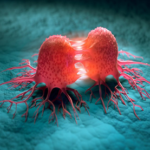
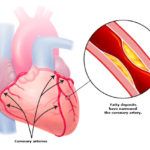
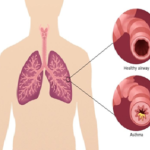
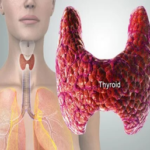

1 thought on “Urticaria”